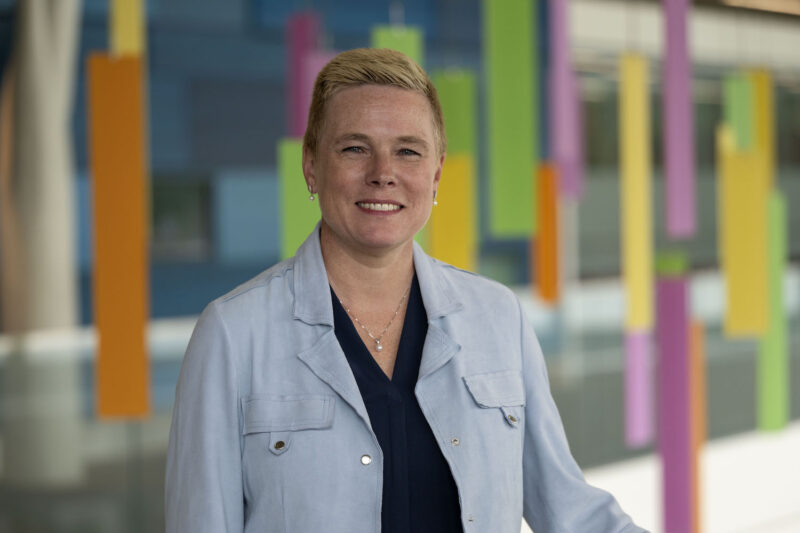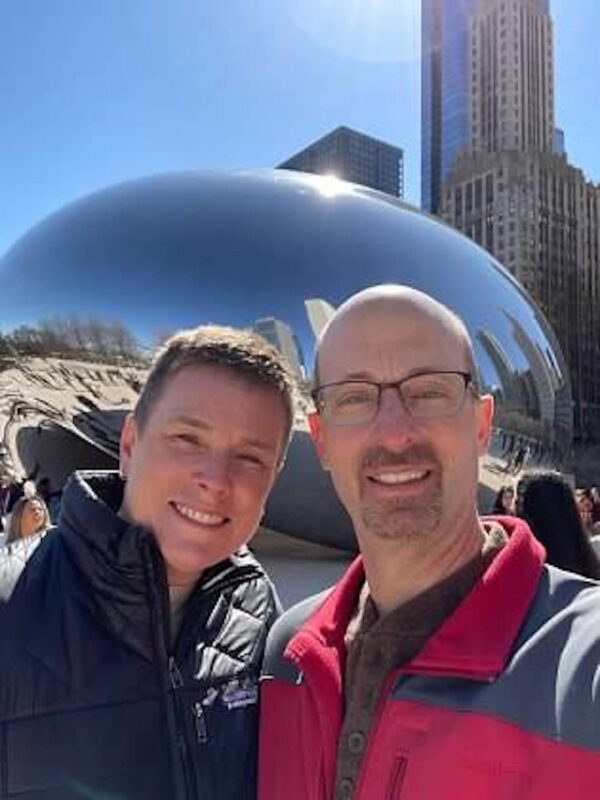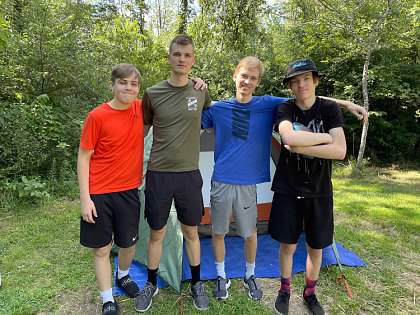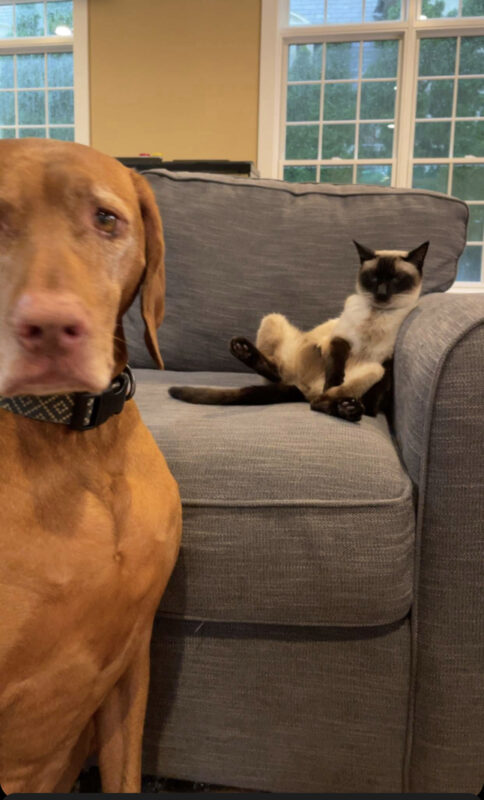
Dr. Marya Strand, chair of Neonatal and Perinatal Medicine and the Endowed Chair in Neonatology and Maternal Fetal Medicine
Marya Strand, MD, MS, has joined Akron Children’s as chair of the newly-formed department of Neonatal and Perinatal Medicine, which brings together the departments of Neonatology and Maternal Fetal Medicine. She is also the Thomas R. and Mary Lynn Crowley Endowed Chair in Neonatology and Maternal Fetal Medicine, which was made possible by a $5 million commitment from the Crowleys in appreciation for the care their daughter received as a premature infant.
A practicing neonatologist who is board-certified in neonatal-perinatal medicine, Dr. Strand previously served as chief medical officer of SSM Health Cardinal Glennon Children’s Hospital in St. Louis. In her new role, she will help advance the evidence-based care Akron Children’s provides to expectant mothers and their babies throughout the region, while creating opportunities in research and medical education.
Why did you choose to come to Akron Children’s?
I love my practice in the NICU. I love being in the delivery room and taking care of babies, moms and families, but there’s a very limited scope to that baby at that bedside. Through hospital administration or academic leadership roles, you have the opportunity to really move the needle on outcomes, quality care and community health in ways that you can’t when you limit yourself to the one baby at the bedside. There’s every possible value in being at the bedside and I love it too, but my vision to enhance quality and outcomes in a broader sense requires more strategic thinking and planning.
What are the biggest opportunities that are created by bringing neonatology and maternal fetal medicine together as one department?
It’s exciting to think about unifying these different roles and practices, and how we can better align these services. Right now, we have so many groups doing great work, but without standardization, there’s no ability to cross-talk or to benchmark against each other. Consequently, there’s no ability to hold each other accountable to a very high quality. It’s really exciting to see what we can do to strengthen these relationships and let these excellent providers thrive.

Dr. Marya Strand and her husband, Dr. Eric Strand
What are you most looking forward to in your new role?
It’s the relationships. This is a wonderful opportunity to establish relationships built on trust and integrity, and help our providers blossom. I feel like I’m one little piece that can help catalyze this and empower those who will make it happen. When you look at maternal and infant mortality statistics in this region, the numbers are not great, but we have enough volume and enough reach to improve those numbers. I think building these relationships, not just with me but with each other, is going to make the difference.
What drew you to neonatology? Will you continue to practice in your new role?
I loved pediatrics in medical school, but the idea of going to an outpatient clinic didn’t appeal to me. I also loved the inclusive physiology of neonatology and the interplay of specialties, but the added complexity of fetal medicine and the delivery room really pulled me in. What a privilege to be in the delivery room with these families. It’s the most joyful, most stressful, most intimate and most private moment, and they let me be part of that. I’m happy to continue to see patients with about 20% of my time being clinical.
What do you find to be most rewarding about it?
There are so many rewards. To anybody who loves medicine, everything is a reward. In the NICU, you are rewarded every day when everyone is working together to do good work for the patient and the family. But nothing compares to being in the delivery room.

Dr. Strand has four sons ranging in age from 16 to 23
What impression do you hope to leave with your patient families each day?
Years ago, I remember talking with a mom about her baby’s overnight care. This was a baby who was sick, but not so sick that I was worried about her when I left the nursery. I tried to explain very clearly to the mom what was going on with her daughter and what I told the team for overnight coverage. She looked at me and said that for the first time since delivering her daughter, she was finally going to be able to go home and sleep. That was so affirming. I want parents to trust us and believe we have their baby’s best interest at the very core of what we do. There’s no better team sport than neonatology and I want families to feel that from our group.
How does your personality fit your new role?
I like to work quickly with a sense of urgency. I’m motivated to improve care and outcomes, especially for the marginalized and minority populations we serve in maternal and newborn care who don’t have a voice.
How do you deal with the emotional impact of being a provider?
When you experience the very emotional end of a child’s life, you don’t get used to it, but you learn how to partition it. My job at that moment is to honor that baby in that family and their relationship. It’s not to necessarily mourn that baby, although there are certainly times that I do. Families are not offended when you share in their grief, but my job is to support them.
Where did you grow up?
I was born in Lima, Ohio, but moved to Louisville, Kentucky, as an infant. I came back to Ohio to attend the College of Wooster. My husband is from Cincinnati and still has family there.

Dr. Strand and her family like to stay active.
Who makes up your family, including any pets, and their names?
My husband, Eric, joined the department of Obstetrics and Gynecology at University Hospitals as vice chair for community partnerships. We have four sons. Ben is the baby. He’s 16 and a junior in high school. We essentially let him pick our new house in Brecksville. Jake is 19 and a sophomore at the University of Illinois. Luke is 21 and a junior at Kendall College of Art and Design in Grand Rapids. Nick is 23 and graduated from Rice University, but is now an officer in the Marines and attending flight school in Pensacola. Our dog Ginger is a Vizsla. We also have a cat named Bellatrix and a kitten named Edward.
Who had the greatest influence on you and why?
The name that immediately comes to mind is David Boyle, a neonatologist at Riley Children’s in Indianapolis, who just retired. He’s been a mentor and friend for years. He introduced me to a lot of folks at the American Academy of Pediatrics, including the Neonatal Resuscitation Program Steering Committee. He has truly been an advocate for me and my success over the years.
Alan Jobe is a neonatologist and pulmonary biologist at Cincinnati Children’s who was my research mentor during my fellowship. From a research perspective, he is unmatchable. He taught me how to think scientifically within medicine.
I would say the third is Myra Wyckoff, a neonatologist at UT Southwestern. She has done pioneering work in newborn resuscitation, leading the entire neonatal resuscitation community in the standardization of practice. She is a leader internationally and nationally, and never takes “no” as the final answer.
What’s one thing that most people don’t know about you?
In high school and college, I was a runner. Having four boys, we’ve always been a very sports-focused family. My husband is a really good athlete too – it drives me crazy that he’s so good at any sport. But when I was younger, I was 90 percent musical and 10 percent athletic, playing the piano, flute, violin and bassoon. I haven’t played any musical instruments since college, but the piano did make the move to Ohio, so we’ll see.

Ginger and Bellatrix
If it weren’t for a successful career in medicine, what other career path would you have chosen?
I love teaching, so maybe a teacher. When I was at the College of Wooster doing independent study, I loved being in the research lab so I could see myself doing that too.
What makes you get up in the morning?
The dog. She is my running buddy. This is an exciting time right now. Everything is new and we are exploring and enjoying the hiking trails in the area.










